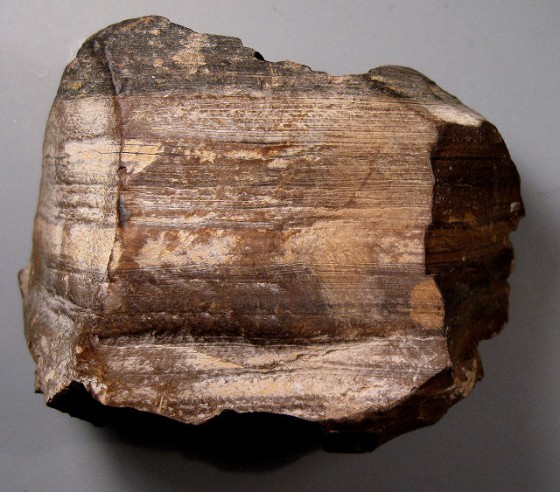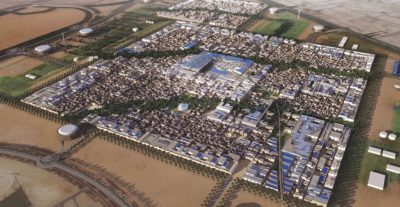 While Israeli activists fight oil shale exploration, Jordan announces plans to explore oil shale next door.
While Israeli activists fight oil shale exploration, Jordan announces plans to explore oil shale next door.
While activists continue to fight against oil shale testing in Israel because of its potentially harmful environmental and social impacts, on the other side of the Dead Sea, Jordan has just announced its intention to explore oil-shale without any opposition from within its borders.
The Hashemite Kingdom sits on the third largest reserve of oil shale deposits, but the technology necessary to extract this fossil fuel safely is still undergoing rigorous testing in the United States and remains deeply controversial among environmentalists. Perhaps spurred on by chronic energy shortages, Jordan intends to go where no one else has been.
Jordan’s second biggest power plant relies on controversial oil shale
In a press release issued by his office, His Majesty King Abdullah announced his inauguration of the Qatraneh power plant last week. The 373 MW hybrid natural gas and oil plant is expected to increase electricity generation by 12 per cent.
“The JD420 million project near the town of Qatraneh, 100km south of Amman, is the second in the Kingdom in terms of capacity,” said Minister of Energy and Mineral Resources Qutaiba Abu Qura during his remarks at the inauguration ceremony.
He added that “This project is an important component of the government’s strategy to meet the country’s growing energy demand.”
Like Israel, Jordan has long relied on imported energy to meet its growing demand, which has come under considerable strain since the natural gas supplied by Egypt has been disrupted since last year’s revolution. In order to meet this need, the Government of Jordan (GOJ) has considered a variety of energy alternatives, including nuclear power that has met massive resistance from local activists.
Where are the local activists?
But oil shale appears to have received less attention. 60% of Jordan is underlain by surface and near-surface oil shale deposits – enough to produce the equivalent of 50 billion barrels of oil, according to early ministry exploration reports.
Abu Qura said Jordan has attracted a number of international companies with experience in the field of oil shale technology to extract oil from the vast shale deposits in the south and produce electricity including the so-called Shell technology.
What will Jordan look like if these “international companies” succeed in tapping into 60% of Jordan’s land in order to extract a fossil fuel that will release even more harmful carbon dioxide emissions into the atmosphere?
Not only that, for the last three decades Shell has been researching and developing in-situ technology that heats the oil shale while it is still in the ground (instead of cracking open the rock to release it.) This is thought to be a more environmentally-sensible procedure than “retorting,” which the GOJ considered for some time, but the Colorado government is not sufficiently satisfied with testing and widespread commercialization of the technology has yet to be authorized in the United States.
Shell in Israel, Shell in Jordan
Possibly frustrated with America’s bureaucracy, the former Shell scientist Harold Vinegar moved to Israel and joined Israel Energy Initiatives (IEI) – the company that received a license to test Vinegar’s in-situ technology in the Elah Valley. But nobody counted on the locals to blow up the secrecy surrounding oil shale in Israel, or on Save Adullam to launch a well-executed anti oil-shale campaign.
Abu Qara says nothing of a relationship with Vinegar, whose technology will be exploited in Jordan.
Early days
If local activists do not resist oil shale development in Jordan, then Shell will be one step closer to advancing widespread commercialization of oil shale extraction. Like the tar sands in Canada, this would be the death knell for earth’s climate.
By 2020, Jordan plans to satisfy 10% of the country’s total energy demand using renewable sources. For a country as vulnerable to climate change as Jordan, and with as much sunshine as it has, this pledge seems insufficiently ambitious.
The earth receives enough sunshine in one hour to power the planet for a year. Given the dire urgency of escalating greenhouse gases in our atmosphere, and the high quantity of water and energy required to exploit oil shale, Jordan would be so much better off steering its political will towards cleaner and renewable energy sources.
:: King Abdullah II Official Website
image via Cochise College
Update March 6:
We originally reported that the recently opened Qatraneh Power Plant south of Amman is a combined gas and oil-shale plant, an erroneous assertion deduced from an unclear press release issued by King Abdullah II’s office. A reader tells us this is a hybrid diesel/natural gas plant and that the country’s oil shale investigations are a separate matter.
More on Oil Shale:
NGO Takes IEI/Genie’s Oil Shale Plan to High Court
Israeli Citizen Group to Fight Oil Shale Plans
Shell’s Mega Oil Shale Deal With Jordan




Thanks Yazan, we appreciate your input. You’ll notice that we updated the article… I completely mis-read that press release.
I can second Lana on this. The Qatraneh plant is indeed NOT an oil shale powered plant.
The external link you provided only aims to highlight that oil shale remains an important part of the Jordanian national energy mix plan, which also includes renewable and nuclear energy.
According the the following article:
http://www.jordanembassyus.org/new/newsarchive/2011/11212011005.htm
Jordan’s first oil shale powered plant will start producing electricity by 2016.
Thanks Lana. I’ve read government projects re: oil shale and at one point the ministry claimed that retorting is a perfectly safe method when elsewhere in the world this technology has been completely abandoned.
Here is a link to the press release issued by King Abdullah II’s office regarding Qatraneh. It says the plant is a gas/oil plant and it references oil shale…
http://www.kingabdullah.jo/index.php/en_US/news/view/id/9884/videoDisplay/1.html
Because of how the press release is structured, it seems like oil shale is part of this plant’s mix. Are you an employee of Qatraneh? How can I clarify this? Because if I’ve made a mistake then I need to acknowledge it immediately.
Enough sun hits the planet in one hour to provide enough energy for a year. If the will were there, solar would have greater priority as it should. As it stands, only 10% of the energy mix will be renewable by 2020, meanwhile climate change has reached dangerous levels.
There is a misconception in your article; the Qatraneh PPP is an electric generation facility featuring a gas/oil-fired combined cycle. It primarily used natural gas as a fuel source while diesel is the secondary source of fuel and not oil shale.
Oil Shale development is another constituent of Jordan’s energy Strategy. It is true that Oil Shale has substantial environmental impacts, however, looking at what we have we are really left with little options. For the record, oil shale development projects in Jordan pass through a long process for environmental clearance. Environmental and social impact assessment is one major prerequisite by the Jordanian Government and is performed according to stringent environmental guidelines and international best practice.
Last but not least, in parallel, Jordan is also working on renewable energy as a conjunctive source of energy.
The bottom line here is…energy safety is THE major issue in this part of the world. Hopefully we can capetalise on our resources while protecting the environment.
Thanks Arwa. I thought of you as I worked on it. I hope it does begin to open up the pathways a wee bit 🙂
Thanks Arwa. I thought of you as I worked on it, so I’m glad you think I’m on the right track here 🙂
Thanks for this really important article Taf. Oil shale really has been sidelined and ignored by activist in Jordan- not because of some approval of its use but more likely, due to a lack of solid information about the dangers of oil shale… let’s hope this article helps raise some awareness..
Arwa X